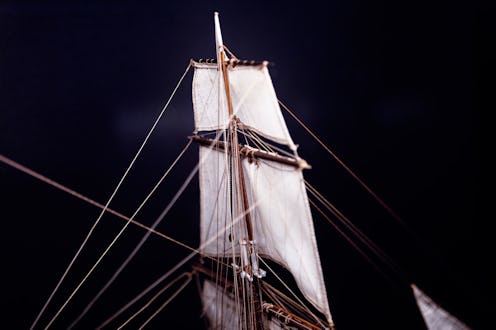Life
5 Facts To Know About Columbus Day

By now we hopefully all know that Christopher Columbus is credited with discovering a continent that had long since been inhabited by Native American peoples, but did you know that Columbus probably wasn't even the first European to step foot in the New World? These Columbus Day facts get to the heart of why we celebrate Columbus Day in the first place, dispelling some common myths and straightening out some skewed truths about Christopher Columbus, his crew, and his long, two-month journey across the Atlantic Ocean.
From just how many people were already living in North America to how big Columbus' crew actually was when he made his infamous voyage, these facts might come as a surprise to you. The holiday is definitely a controversial one — and yet it's something Americans have been observing since the 18th century.
This Columbus Day, use your Monday off to learn something new about the day you are celebrating. While Columbus' adventurous spirit is something to note, it is also important to acknowledge the many inaccuracies our childhood history books have left us with. Get your facts straight, and then spread the knowledge. The more you know, the more you can help to right history's wrongs.
1. Millions of people were already living in North America before Columbus ever "discovered" it.
While it's impossible to determine exactly how many indigenous people were living in America before it was colonized, estimates range from a "low" of 2.1 million all the way up to 18 million.
2. Columbus probably wasn't even the first European to discover America.
So not only was Christopher Columbus not the first to discover America, he was also likely not even the first European to do so. Leif Erikson (whose famous father Erik the Red founded Greenland) and his viking crew made the North Atlantic Crossing to Newfoundland in 1000 A.D., which was nearly five centuries prior to Christopher Columbus' voyage across the Atlantic.
3. Columbus was looking for Asia when he came to America.
Christopher Columbus wasn't actually out to discover a new continent when he stumbled upon the Americas. In fact, he was looking to find a new route from Europe to Asia that would allow for easier spice trade. Even when Columbus had landed at what is now considered the Caribbean Islands, he believed he had reached Asia.
4. The journey made by Columbus and his crew was not an easy one.
Though he's (incorrectly) credited as having discovered America, Christopher Columbus's journey was no fairytale. He sailed with a 90 man crew that suffered from sickness, famine, and exhaustion over the course of two months while they were at sea.
5. Columbus Day didn't become a federal holiday until the 20th century.
Columbus may have made his voyage in 1492, but it wasn't until 1937 that Columbus Day was actually recognized by the U.S. government as a federal holiday (we have President Franklin D. Roosevelt to thank for that). That being said, the holiday had been observed since the late 1700s as Italian Americans used the opportunity to celebrate their heritage, usually with parades.
Images: Octavian Rusu / EyeEm/EyeEm/Getty Images; Giphy